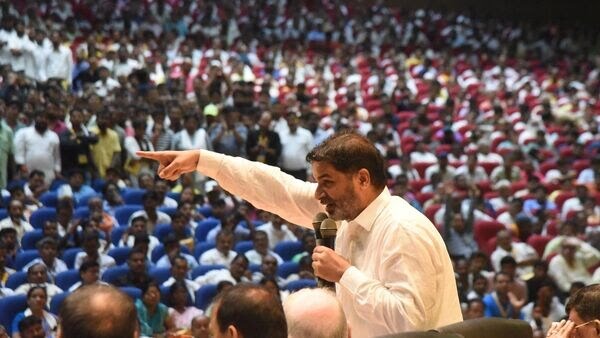Patna, July 30: Prashant Kishor has unveiled the leadership plan for his upcoming political party, Jan Suraaj, announcing that he will not assume the role of president. This decision has generated considerable speculation regarding who will lead the party, said a report by the Mint.
Kishor, who will officially launch Jan Suraaj on October 2, 2024, has revealed that the position of the party president will be open to candidates capable of recruiting at least 5,000 members. Currently, 25 applicants are eligible to be considered for this role. The decision on the party’s first president will be made by a newly established seven-member committee. This committee comprises Dr. Bhupendra Yadav from Samastipur, R N Singh from Begusarai, former IAS officer Suresh Sharma, lawyer Ganesh Ram from Siwan, Dr. Manjar Naseen from East Champaran, former IAS officer Arvind Singh from Bhojpur, and Swarnlata Sahani from Muzaffarpur.
In a notable departure from traditional party practices, Kishor has announced that the first president of Jan Suraaj will come from the Dalit community, reflecting the party’s commitment to addressing the needs of the most disadvantaged groups. Future presidents will rotate among various social groups, including Extremely Backward Classes (EBCs), Muslims, Other Backward Classes (OBCs), and General categories, ensuring broad representation across the party’s five-year electoral term.
Kishor also emphasized that Jan Suraaj will set Class 10 or 12 as the minimum educational qualification for its party president, critiquing rivals like Lalu Prasad Yadav and Nitish Kumar for their handling of education in Bihar.
Additionally, Kishor outlined plans to field around 70 candidates from EBCs, which constitute 36% of Bihar’s population, in the upcoming Assembly elections. Notable new members joining Jan Suraaj include Jagriti Thakur, granddaughter of former Bihar Chief Minister Karpoori Thakur, retired IPS officer Anand Mishra, and former RJD MLC Rambali Singh Chandravanshi.
Jan Suraaj aims to offer a fresh political approach in Bihar, challenging the current leadership and addressing issues of representation and development.




